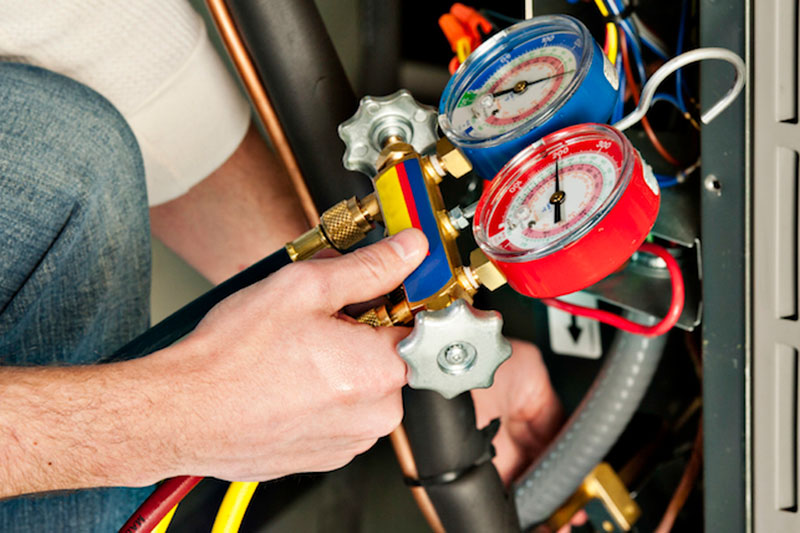
You might not think often about how your air conditioner operates, but it needs refrigerant to keep your home cool. This refrigerant is subject to environmental laws, because of the chemicals it contains.
Subject to when your air conditioner was installed, it may use R-22, R-410A or R-32 refrigerant. We’ll go over the differences and which air conditioner refrigerants are being phased out in Genoa, plus how these phaseouts affect you.
What’s R-22 and Why Is It No Longer Being Made?
If your air conditioner was installed before 2010, it possibly has Freon®. You can learn if your air conditioner uses it by contacting us at 847-306-8990. You can also look at the name plate on your air conditioner condenser, which is found outside your residence. This sticker will include details on what model of refrigerant your AC has.
Freon, which is also known as R-22, contains chlorine. Scientists consider Freon to be damaging to the earth’s ozone layer and one that prompts global warming. The Environmental Protection Agency, which governs refrigerants in the United States, banned its manufacture and import in January 2020.
Should I Replace My R-22 Air Conditioner?
It depends. If your air conditioning is operating correctly, you can continue to run it. With yearly air conditioner maintenance, you can expect your air conditioning to last around 15–20 years. However, the Department of Energy reports that substituting a 10-year-old air conditioner could save you 20–40% on summertime cooling costs!
If you don’t get a new air conditioner, it can create an issue if you require air conditioning repair later on, specifically for refrigerant. Repairs could be higher-priced, since only reduced levels of recycled and reclaimed R-22 is available.
With the phaseout of R-22, a lot of new air conditioners now have Puron®. Also called R-410A, this refrigerant was created to keep the ozone layer strong. Since it requires a varying pressure level, it isn’t compatible with air conditioners that rely on R-22 for cooling.
However, Puron still has the potential to contribute to global warming. As a consequence, it may also ultimately be discontinued. Although it hasn’t been communicated yet for residential air conditioners, it’s anticipated sometime this decade.
What Refrigerant Will Take Over R-410A?
In preparation of the end, some companies have started using R-32 in new air conditioners. This refrigerant is classified low for global warming possibility—around one-third less than R-410A. And it also reduces energy expenditure by around 10%, according to the Intergovernmental Panel on Climate Change’s Fourth Assessment Report. That’s savings that could be passed on to you through your energy bills.
Assured Appliance & Heating & Air Can Assist with All Your Air Conditioning Needs
In brief, the modifications to air conditioner refrigerant probably won’t concern you a whole lot until you require repairs. But as we talked about earlier, refrigerant-related repairs may be more costly since there are the reduced levels that are accessible.
In addition to that, your air conditioner frequently malfunctions at the worst time, often on the hottest day when we’re receiving many other appointments for AC repair.
If your air conditioner uses an outdated refrigerant or is aging, we suggest installing an up-to-date, energy-efficient air conditioner. This delivers a stress-free summer and may even reduce your electrical expenses, especially if you choose an ENERGY STAR®-rated system. Plus, Assured Appliance & Heating & Air provides many financing programs to make your new air conditioner even more affordable. Contact us at 847-306-8990 to begin right away with a free estimate.

